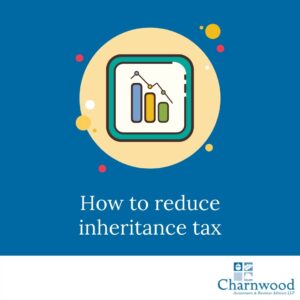For many people, reducing the burden of inheritance tax (IHT) is a primary concern for their families. Currently, at the time of writing, there are various ways you can mitigate future tax liabilities, and it is also vital you have a legally binding Will in place to protect your estate.
Below are the thresholds and current criteria relating to inheritance tax:
- No inheritance tax – is due if your estate is worth less than £325,000, or if it’s above this amount, and it is left to your spouse or civil partner.
- 40% inheritance tax – may be due if your estate is above £325,000 and you do not have a spouse or civil partner.
You can increase the inheritance tax threshold up to £500,000 by leaving your home to your children or grandchildren (your estate value must be less than £2 million). If you moved out of your property and lived for another 7 years, there would also not normally be a tax liability, however, if you passed away, your home would be treated as a gift (see rules below).
Gifting is another approach to reduce your family’s future tax liabilities. The total amount you can gift per year without this being added to your estate value is currently £3,000 (August 2021), and this is known as your ‘annual exemption’.
If you are a parent or grandparent, you could gift up to £250 per year to a child or grandchild if they have not benefited from your annual exemption (or another type of allowance). This does not include birthday or Christmas gifts if these are given using your usual income.
There are other circumstances where you can give tax-free gifts to help reduce the value of your estate. If someone is getting married or entering a civil partnership, you can give £5,000 if they are your child, £2,500 if they are your grandchild, or up to £1,000 to others.
There are rules around gifting. The gift must be given more than 7 years before the person giving the gift passes away, otherwise, this could be taxed as part of their estate. Also, anything left in a Will would not be a gift.
If you wanted to support your child, for example, making payments into a savings account or helping them to pay rent on a property, this would be considered ‘gifts out of income’.
You can also reduce your inheritance tax liability to 36% by leaving a minimum of 10% of your estate net value to a charitable organisation.
Trusts are a useful way to reduce inheritance tax, depending on how they are set up and this does not necessarily require a complicated strategy. Trusts are available to everyone; this is not just something for rich and wealthy individuals. Please see our previous blog, Can trusts reduce inheritance tax?
If your estate is worth more than £650,000, then you are advised to speak to an accountant to put a strategy in place to protect your estate.
If you would like advice on inheritance tax, please get in touch by emailing: accountants@charnwoodaccountants.co.uk

